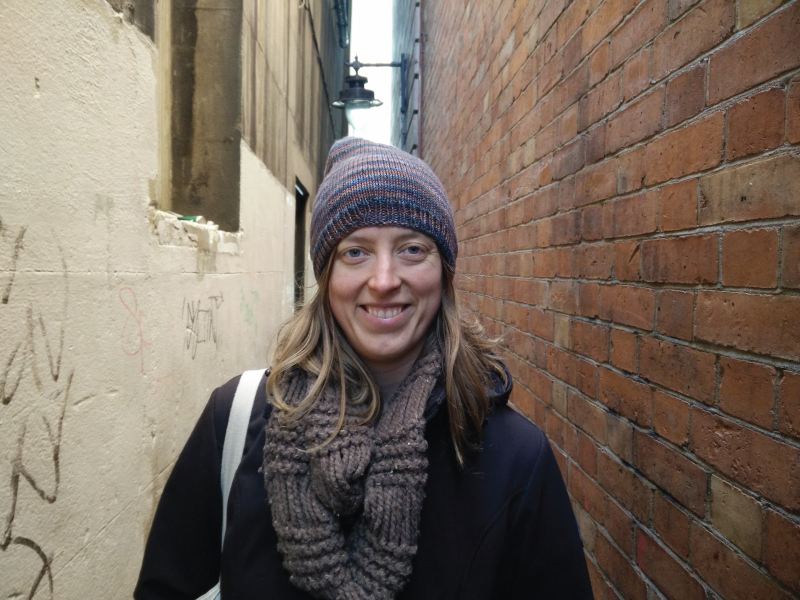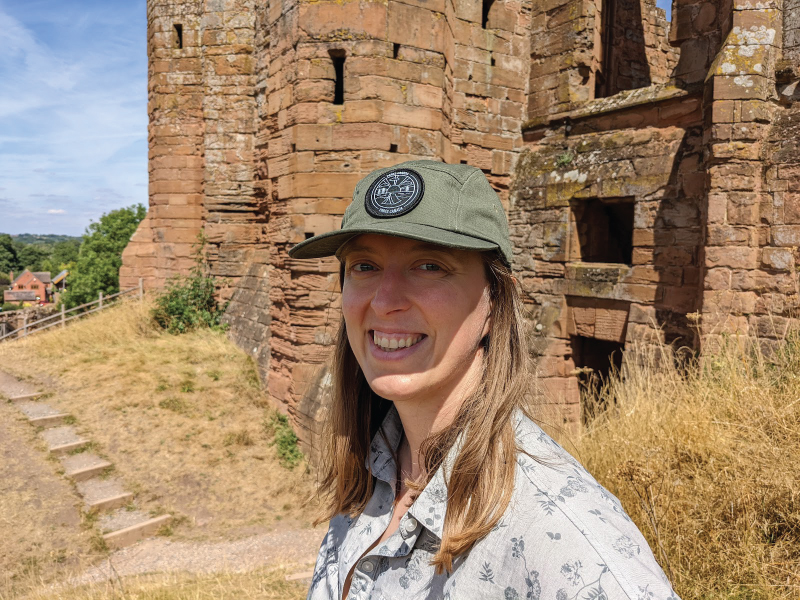Communication and Culture PhD alum is the recipient of the university’s Gold Medal Achievement Award
This past year has been full of accomplishments for Steph Hill, who recently completed her Communication and Culture Ph.D. and received the prestigious Gold Medal Achievement from Toronto Metropolitan University. Each year, the Gold Medal is presented to a student with exceptional academic achievement and contribution to the University, community, and professional sector.
Hill discusses her accomplishments and essential experiences on her journey to completing her doctorate.

Image courtesy: Steph Hill
1. What was the biggest challenge for you this past year and how did you persevere/overcome this challenge?
At the end of the doctorate, there are all these overlapping choices – What do you do next? Are you staying in academia? Are you trying to get a job outside of the academy? What kinds of jobs are available in either case? For me, I wanted to stay in academia – I like research and writing, I like to teach, I have a good support community, and I felt like I had a chance at a job – but there are a lot of potential ways forward and all of them include writing long, complicated job applications at the same time as I was trying to finish writing my long, complicated dissertation. So, that's already a huge challenge in terms of time and existential dread.
I was lucky in one of my applications and was offered a full-time position in the UK. This was both an incredible opportunity and a big decision that I had to take with my partner (and our cat). Once I decided to go for it, we had to pack up our home in Toronto, choose what would come with us during the move, say goodbye to our friends, and I still had to finish my dissertation! I think I persevered in the same way that I made it through the rest of the Ph.D. – I relied on my friends and family, used a timer to force myself to write, and spent a lot of time running and looking at birds to help keep all the stress in perspective.
2. What has been the most rewarding or enjoyable part of your Ph.D. study experience?
It has been really rewarding to participate in the bigger academic community. Being a Ph.D. student/candidate is an open invitation to meet and work with other members of the university, and members of the academic community around the world. During my Ph.D., I was part of the Communication and Culture Joint Program's Graduate Student Association, which gave me an opportunity to create events with and for fellow students and to meet and support other members of our program. I've also been able to work with the International Association for Media and Communication Research, first receiving mentorship from generous global scholars, and then being able to pay that mentorship forward by becoming co-chair of the Emerging Scholars Network. For me, these open, self-organized communities represent the best that academic life has to offer and the generous spirit that animates them really inspires me as I move forward as a researcher and educator and mentor.
3. What experiences have helped prepare you for your future career?
I took five years away from universities between my undergrad and my master's degree (and subsequent Ph.D.). I did all kinds of things: I worked in an industrial recycling centre, taught English as a foreign language in Vietnam, made comics, learned martial arts like Brazilian jiujitsu, worked in publishing and participated in organized activism. All those experiences helped me build a clearer idea of my strengths, my curiosity, and my interest in new experiences. They also fed my empathy and open-mindedness. The best thing anyone who works in academic environments can do is respect that diversity and support people as they are in the program, rather than holding them to some ideal standard of what academic life is or should be like.
4. What advice do you have for current or future students?
Get a hobby! University will take up as much of your life as you let it. It's really important to have something to help keep it in perspective and feed your enthusiasm because you can't keep going if you are constantly on the verge of burning out. It's also a real gift to have friends from outside of the university. There's a whole world going on outside of whatever class you are taking or paper that you are writing.
5. What are your plans and goals for the future? Where are you headed next?
I'm in the UK for the time being! I started as a lecturer at the University of Leicester this summer, so I'm meeting my new colleagues, trying to build my dissertation work into its final form, and starting my next research project looking at the negotiation of a plastic pollution treaty at the UN. I miss Canada already, but I am trying to seize the opportunity to see more of the world, make friends, and build the next step of my academic career.

Image courtesy: Steph Hill

The Creative School at Toronto Metropolitan University
The Creative School is a dynamic faculty at Toronto Metropolitan University making a difference in new, unexplored ways. Comprised of Canada’s top professional schools and transdisciplinary hubs in media, communication, design and cultural industries, The Creative School offers students an unparalleled global experience in the heart of downtown Toronto.